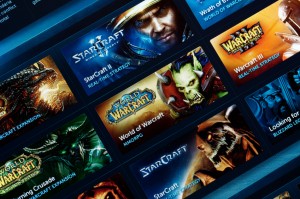Newcastle University Business School is leading research into the long-term imbalance in the UK’s oral health after being awarded an ESRC (Economic and Social Research Centre) grant.
Newcastle University experts are to help tackle oral health inequalities in Britain.
The team will be investigating inequalities in dental care and dental provision in a bid to help narrow health gaps among social groups.
With £200,000 of funding from the ESRC a team of academics from Newcastle University, in collaboration with University College London (UCL), and the National Centre for Social Research (NCSR) hope their findings will influence national and international health policy.
Using the Adult Dental Health Survey (ADHS) from 1988, 1998 and 2009, this 18-month study will inform academics and policy makers on how inequalities change over time, while also providing a vital benchmark to monitor inequalities in the future.
The scope of the research will fall into four main areas: to measure the level of socioeconomic inequalities and to decide what aspects of oral health to measure; to investigate health behaviours, dental service provisions and the interaction between oral health behaviours and the care provided; how these social and economic influences can lead to inequalities; and finally, to investigate the trends in oral health inequality over a 21 year period.
Newcastle University Business School’s Professor of Health Economics, John Wildman, said: “We are aware of the lack of detailed research in this area of health, and aim for this research to lead and provide a template for future investigations into oral health inequality.
“It is hoped that this research will highlight where policy makers and practitioners can combat health inequalities specifically related to wealth, education or social position. Making the UK society fairer and healthier.”
Co-investigator Jimmy Steele CBE, clinical professor from the School of Dental Sciences and the person behind the Independent review of NHS dentistry in England in 2009, said: “This collaboration will examine one of the crucial areas as we go forward. Dental health and access to dental health care has improved hugely in the last decade but not for everyone, everywhere.
“We will be seeking to determine why there are big differences, where best practice is and how that can be implemented across the country.”
Research team:
The team of researchers come from a range of backgrounds including: economics, public health and clinical dentistry.
Principle investigator:
Professor of Health Economics, John Wildman, Newcastle University Business School
Co investigators:
Professor Jimmy Steele, from Newcastle University’s School of Dental Sciences, and Dr Jing Shen from Newcastle University’s Institute of Health and Society.
Three academics from University College London are also on the team: Professor Stephen Morris, Dr Richard Watt, and Dr Georgios Tsakos.
Finally, Elizabeth Ann Fuller will work on the project, and she is from the National Centre for Social Research.
About the ESRC
The Economic and Social Research Council (ESRC) is the UK’s largest organisation for funding research on economic and social issues. It supports independent high quality research which has an impact on business, the public sector and the third sector. The ESRC’s total budget for 2012/13 is £205 million. At any one time the ESRC supports over 4,000 researchers and postgraduate students in academic institutions and independent research institutes.



